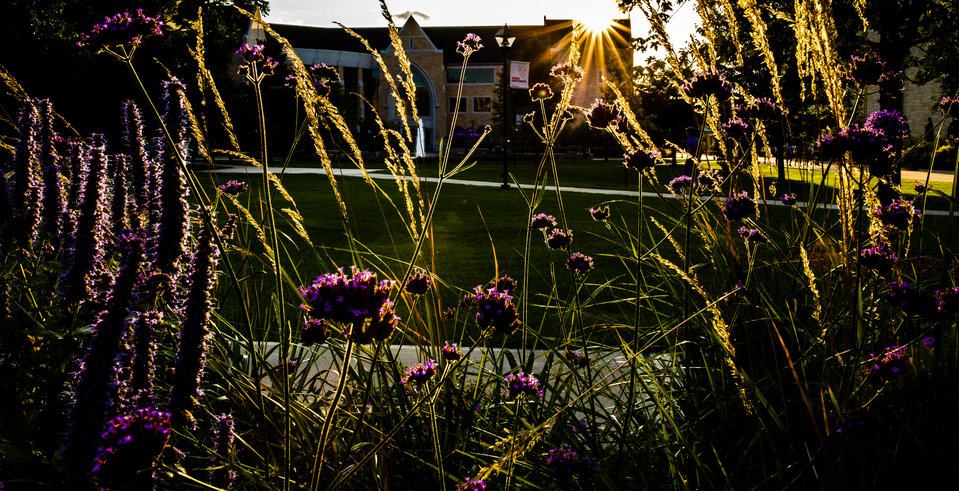Last fall, a group of St. Thomas faculty and staff became part of the university’s first Seeking Educational Equity and Diversity (SEED) cohort. The National SEED Project began more than three decades ago and has been used in educational institutions across the country to engage people in conversations about equity and diversity by using peer-led facilitators.
“It is really a model about how to engage in a conversation about all of the things that make us different, the types of oppression people experience, and the need to create systemic change,” said Michelle Thom, associate vice president for human resources. “It’s about giving schools and campuses a model through which they can have these critical conversations.”
The idea to bring SEED to St. Thomas happened after President Julie Sullivan’s St. Thomas 2020: Living Our Mission, Expanding Our Horizon strategic plan came out in 2014. Once the funding was secured, Thom, along with Rama Hart, an associate professor in the Opus College of Business, and Rachel Harris, director of finance and planning for Student Affairs, went through SEED facilitator training last summer. They are currently leading the inaugural St. Thomas SEED cohort made up of 16 staff and faculty members from around campus.
Cohort members go through 25 hours of face-to-face time with facilitators and are given assignments to complete in order to prepare for sessions that include deep and critical conversations.
“This first year we decided to focus on race and ethnicity,” Thom said. “We did that intentionally because of what was happening on campus when the cohort started last October. However, we are trained on multiple forms of identity and oppression. In future sessions, we will talk about other kinds of isms having to do with gender, nationalism, xenophobia, LGBTQIA+ issues and sexual identity.”
Salina Renninger, director of training and associate professor in the Graduate School of Professional Psychology, is part of the inaugural SEED cohort. She called her experience in the program “phenomenal” and said it has provided her space to learn, reflect and connect with others.
“SEED provides opportunity to work toward several of the anti-racism plan goals, but most specifically related to living inclusive excellence, sending a clear message about our convictions and supporting and standing with students of color,” Renninger said. “I believe that our institution will benefit from having many people attend a SEED group because, over time, it will help us develop increased comfort and shared language for having difficult conversations. It will allow more individuals to examine their own experiences and the existing structures of the institution through a critical lens, which may lead to innovative changes that create a more inclusive campus.
“I believe, with strong conviction, that change at the institutional level will only occur with change at the individual level,” she continued. “There is a synergy that exists between these two levels. SEED targets the individual and individual relationships. These experiences change the individual and how they see the world and this changes how they perceive the work of the institution. When the institution sanctions this development of the individual and then listens to the ideas of individuals, change becomes possible.”
The university is sponsoring the training of up to six new facilitators this summer in an effort to grow more SEED cohorts in the future. Ultimately, Thom said she’d like to see everyone who is interested in SEED have the opportunity to participate.
“The method we use is all about storytelling,” Thom said. “People have to dig deep into their past and surface the stories that have had an impact on them or on others around us depending on where you sit from a certain position.
“We talk about creating brave space, which is a little different than safe space,” she continued. “Brave space is encouraging people to talk about times they’ve been oppressed or times they’ve been the oppressor. It encourages people to come out with those stories so that they can then learn from them.”
Soren Hoeger-Lerdal, graduate program coordinator for the English Department, is a current cohort member who is going through facilitator training this summer.
“I want to be trained as a SEED facilitator for two reasons,” Hoeger-Lerdal said. “First, I want to help create a safe space on campus to continue the discussions we’ve had this year in SEED with a new group of faculty and staff. Second, and a bit more selfishly, is that I want to continue to be a part of the discussions themselves. The facilitators do many things like keeping the group on track, enforcing the rules of SEED, giving good prompts and making the space feel safe. But they are also participants themselves. It has constantly felt like the facilitators are doing this learning with the rest of us, sharing stories, being honest and open.”
Thom said the strength of SEED is that participants explore their own identities first.
“As we become more self-aware about our own identities, we can start to engage in the process of understanding the identities of the people who are around us in this setting,” she said. “As we do that, we end up building these trusting relationships because we’re sharing these very deep personal things about one another. We use that trusting relationship to think about how can we work together to identify and change systems of oppression.”







